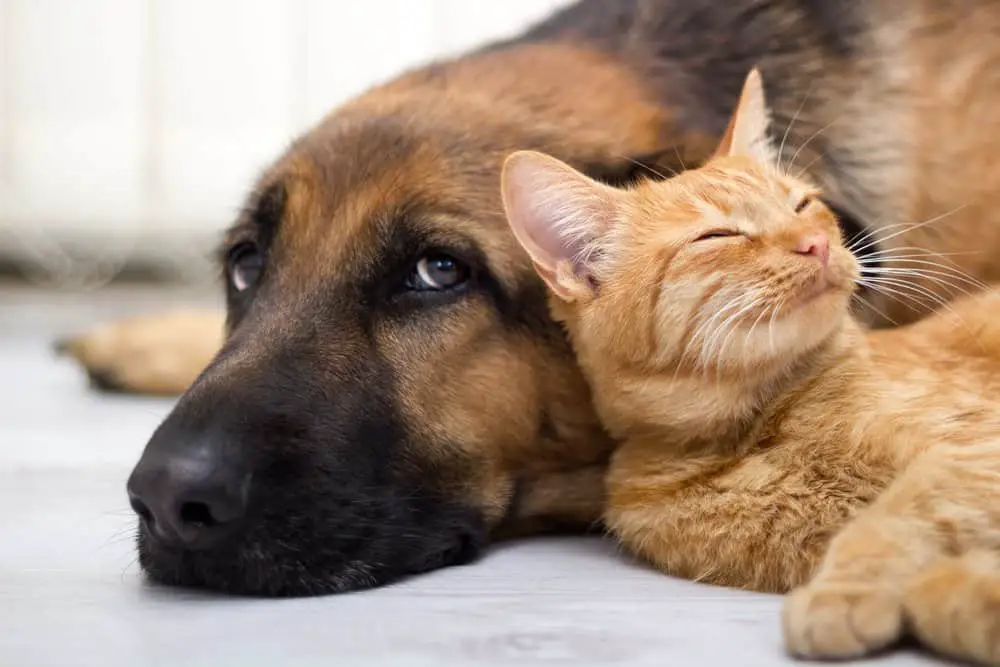Is your house a cat home or a dog home?
If you want it to be a bit of both, you’ll need to learn all about the kinds of dog breeds that are good with cats.
Personally, I think all pets are good pets, and if you have enough love in your heart and enough room in your home for multiple animals to share, you should definitely go for it!
It is important, though, to note that some dog breeds are better bets for living harmoniously with cats than others.
Smaller dogs—those bred as lap dogs, for example–tend to be affectionate and friendly to humans and other animals alike.
Dogs bred to hunt, on the other hand, would have to fight those hunter instincts when cohabiting with another furry friend.
Of course, there are exceptions to every rule.
A foxhound may prefer to play with a cat than chase it.
A Chihuahua may bite a feline friend rather than lick it.
No matter what dog you choose to add to your cat home, you’re going to need to give both animals time to adjust to one another.
Still, some dog breeds take to it easier than others.
Let’s check out what dog breeds are best suited with cats– ?
6 Large Dog Breeds That Are Good With Cats:
Larger dogs may look like threats to cats, which they outsize and out-power, but the right big dog can be the perfect companion for a feline friend.
1. Collie:
The collie was bred to protect and manage other animals. It may not need to herd your cat, but its amiable personality and instinct to protect and guide other animals mean the two pets should have no trouble getting along with one another.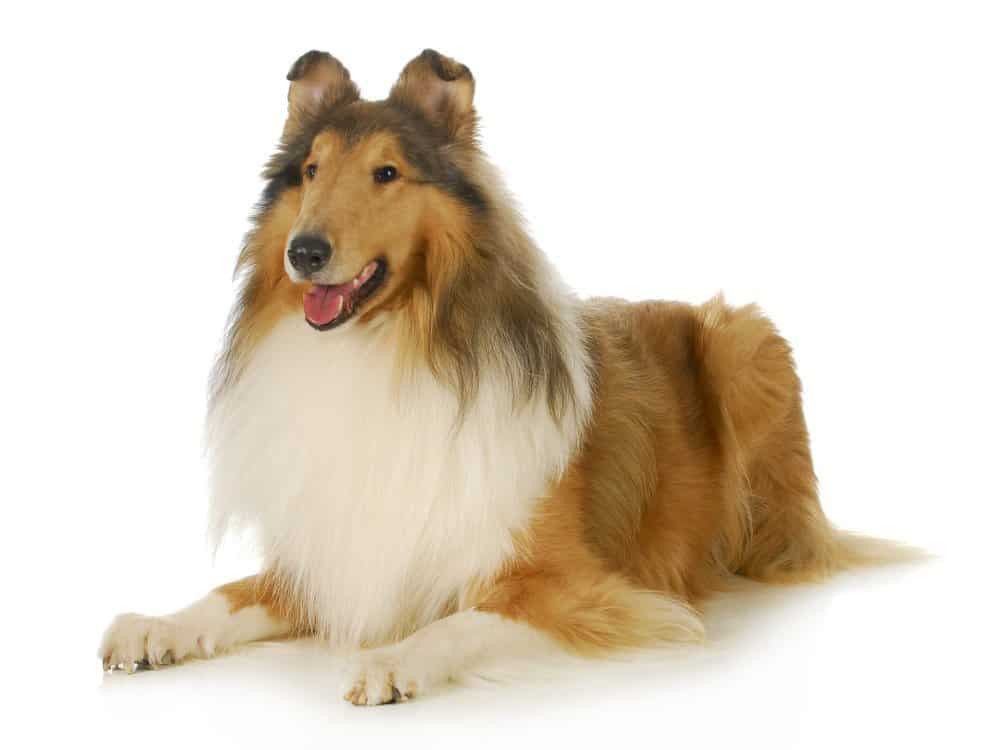
2. Border Collie:
Just like the collie, the Border Collie was bred and raised to be around other animals and serve as their companions.
Considered by many to be the smartest breed of dog on the planet, a border collie will adjust to the presence of a cat quickly and learn how to best cohabitate with it.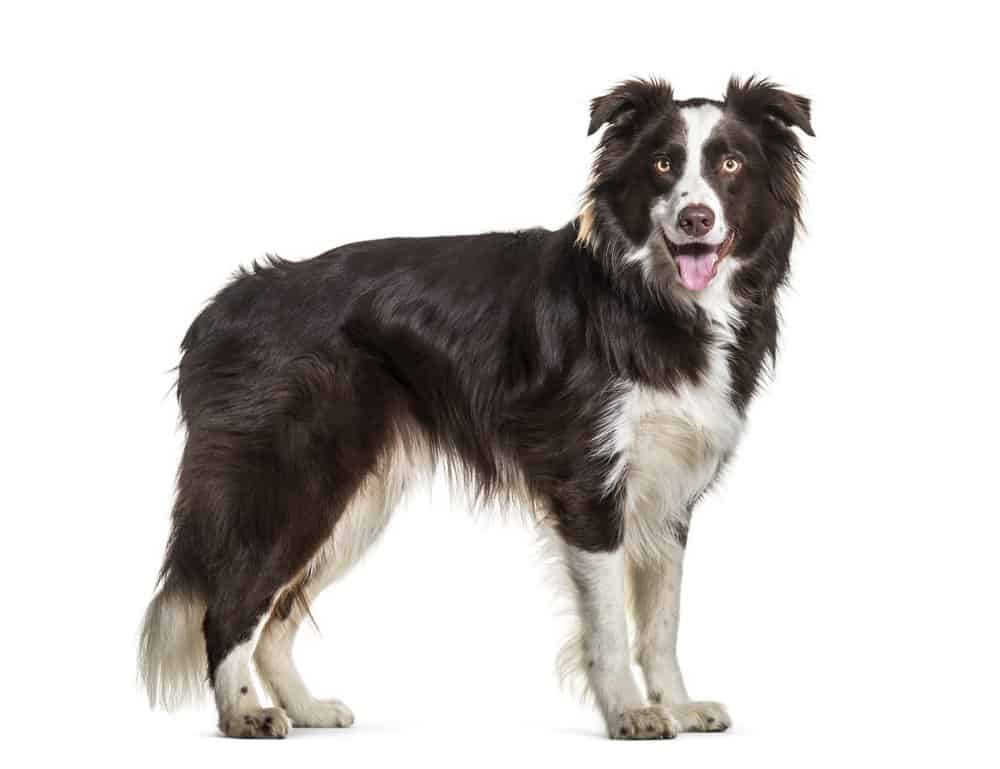
3. Labrador Retriever:
The most popular breed in the United States isn’t just beloved by humans. The goofy and even temperament of Labrador Retriever make them fast friends with anyone from humans to, yes, cats.
[ FAQ: Which is Better: Male or Female Labrador? ]
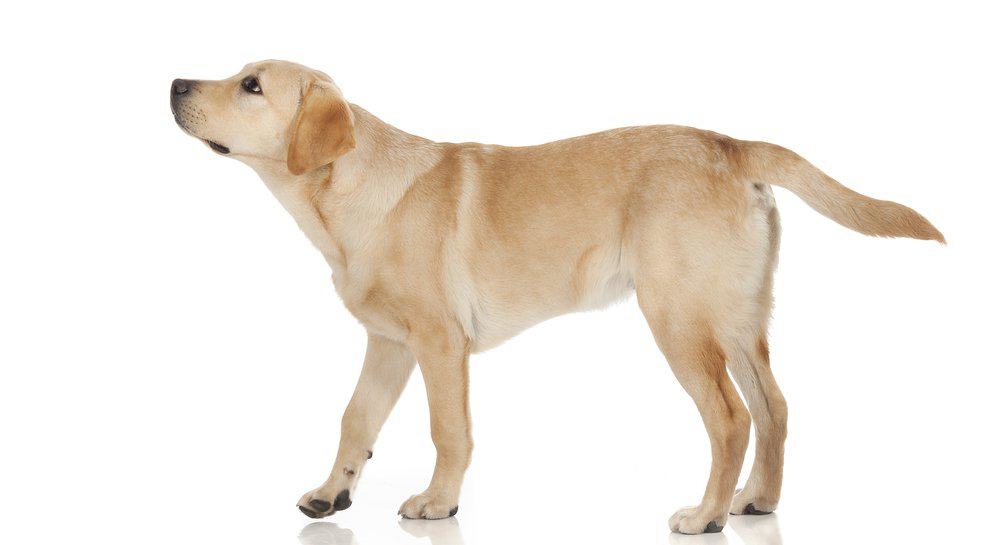
4. Golden Retriever:
Perhaps the only breed of dog more naturally affectionate than the Labrador retriever is the Golden Retriever.
Without a suspicious bone in their bodies, golden retrievers approach stranger–human and feline alike–with eager curiosity and bountiful love.
It’ll take no time at all for a golden retriever to come to love your cat as much as any other member of the family.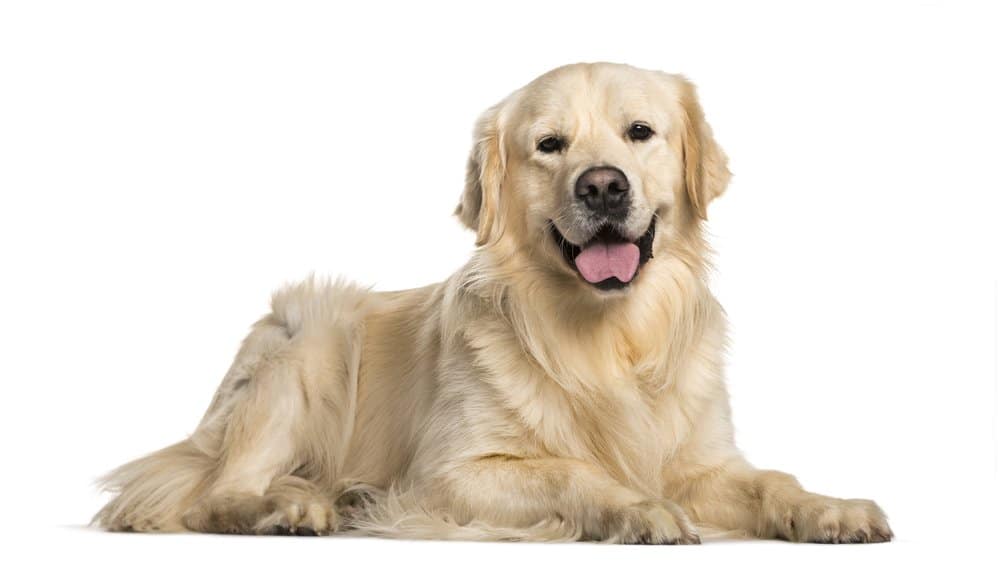
5. English Setter:
English Setters are famed for their calm and mild demeanor. They enjoy hanging out with other animal friends, but they do so in a fairly unobtrusive way. Their placid pace makes them great companions for, especially skittish cats.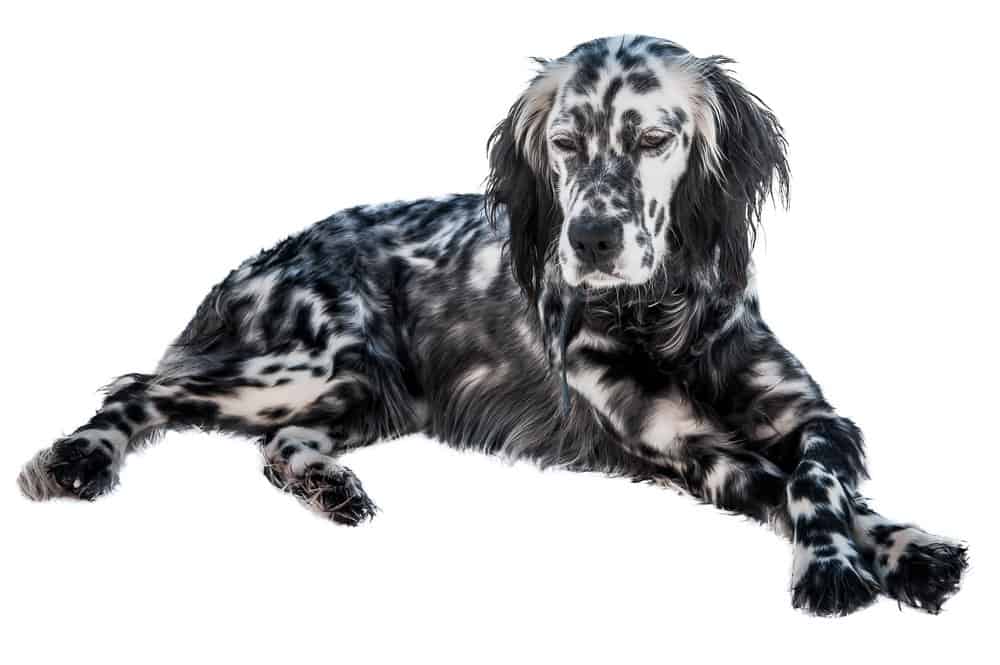
6. Bulldog:
Bulldogs pack a lot of love into their dense bodies. Their amiable nature means they approach strangers of all species as new friends; no need to worry about your pets fighting for attention if your cat has to share a house with a bulldog.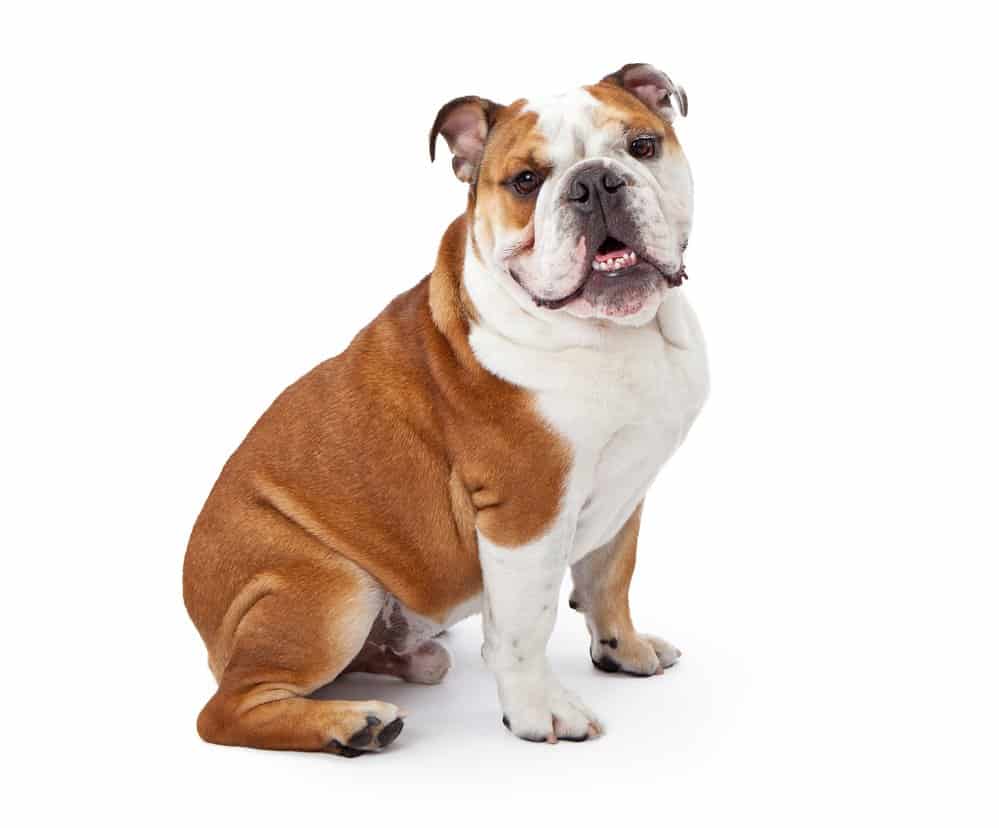
7 Small Dogs That Are Good With Cats:
Small dogs, for the most part, have been bred for different reasons than their larger counterparts.
Whereas big dogs are sought after for hunting, scouting, and protecting, small dogs appeal to families that want constant companions and lap warmers.
Their small statures and bred-for docility even the playing field between cats and dogs, making for harmonious multi-animal homes.
1. Pomeranian:
Pomeranians are on average, 5 pounds of pure spunk. Known for being active and biddable, these german dogs can keep up with a confident cat, but can also be easily trained to respect the boundaries of a cat that needs more space.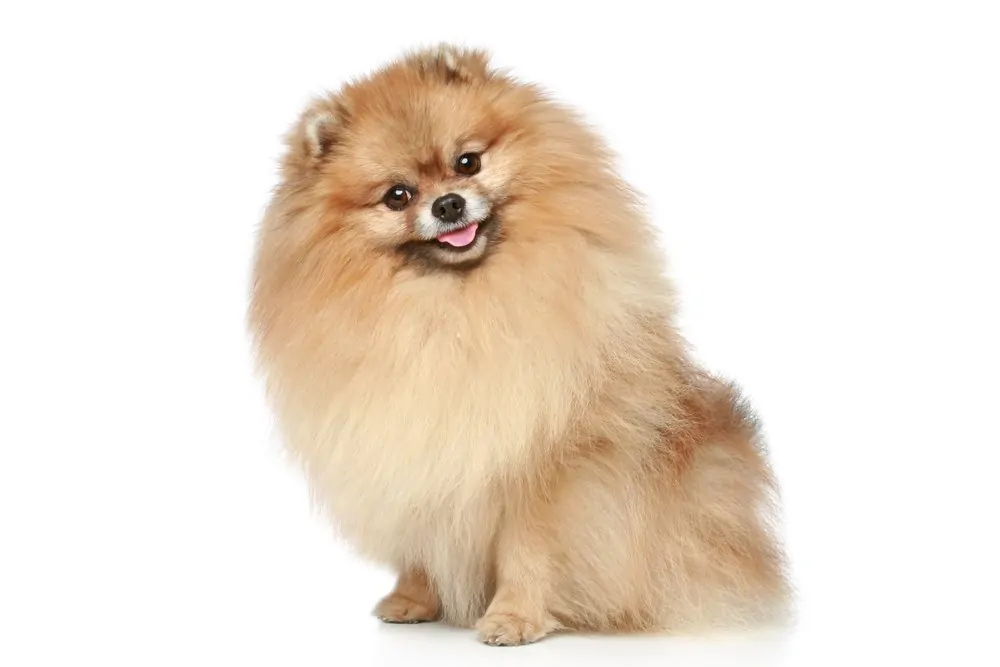
2. Shih Tzu:
A Shih Tzu is one of the most favored lap-warming dogs. In addition to their gentle natures, Shih Tzus are pretty good with adapting to change—including the introduction of a new pet in a household.
Although they tend to be attention-seeking, and therefore struggle with sharing affection from owners, the Shih Tzu’s responsiveness to discipline and flexibility means they’ll learn how to respect your cat’s space before you can blink.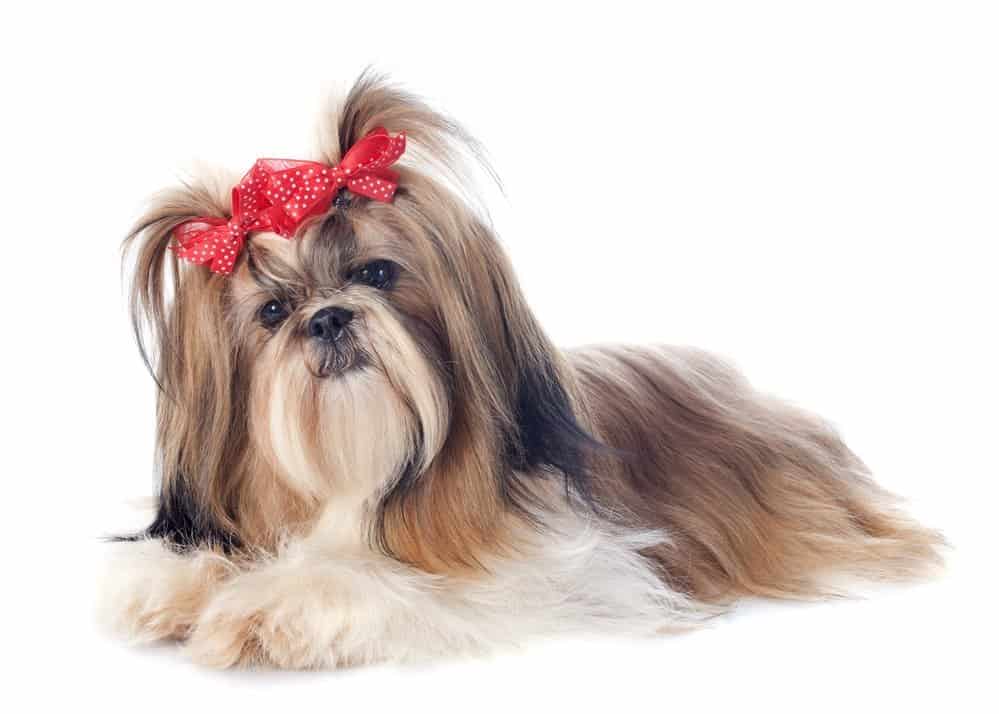
3. Basset Hound:
Despite its small size, a Basset Hound is still a hound, and members of the breed can tend towards being headstrong and ornery.
That said, they are no more stubborn with cats than they are with any other species. Mild-mannered, a Basset Hound is usually quite accepting of sharing space with other animals.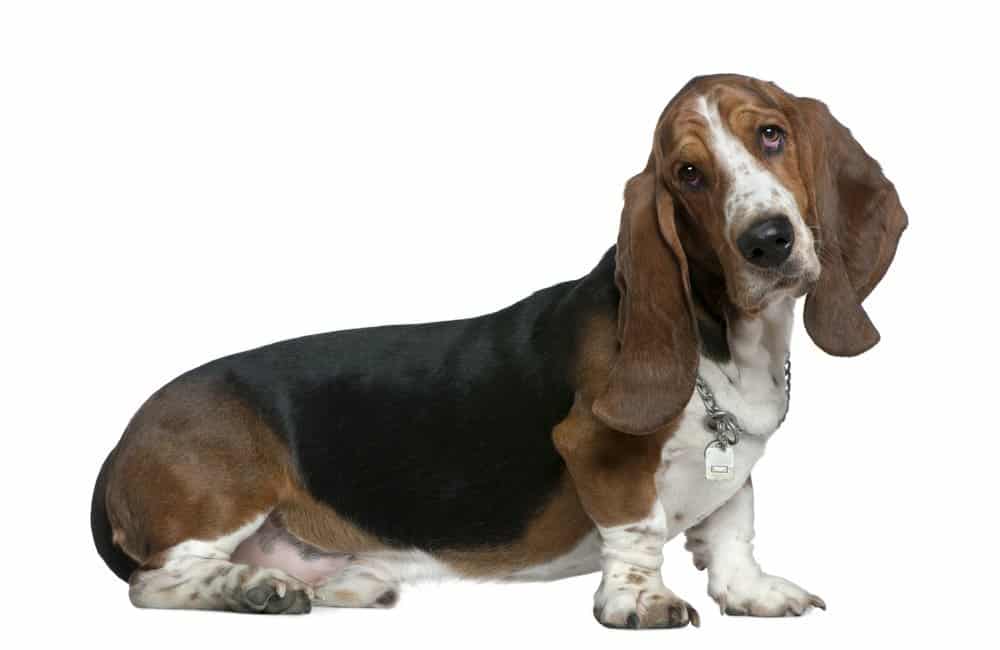
4. Papillon:
Especially for smaller dogs, papillons are known for not being prone to barking. They have a lot of energy, but with proper training and socialization, papillons make great playmates for both other animals and young children.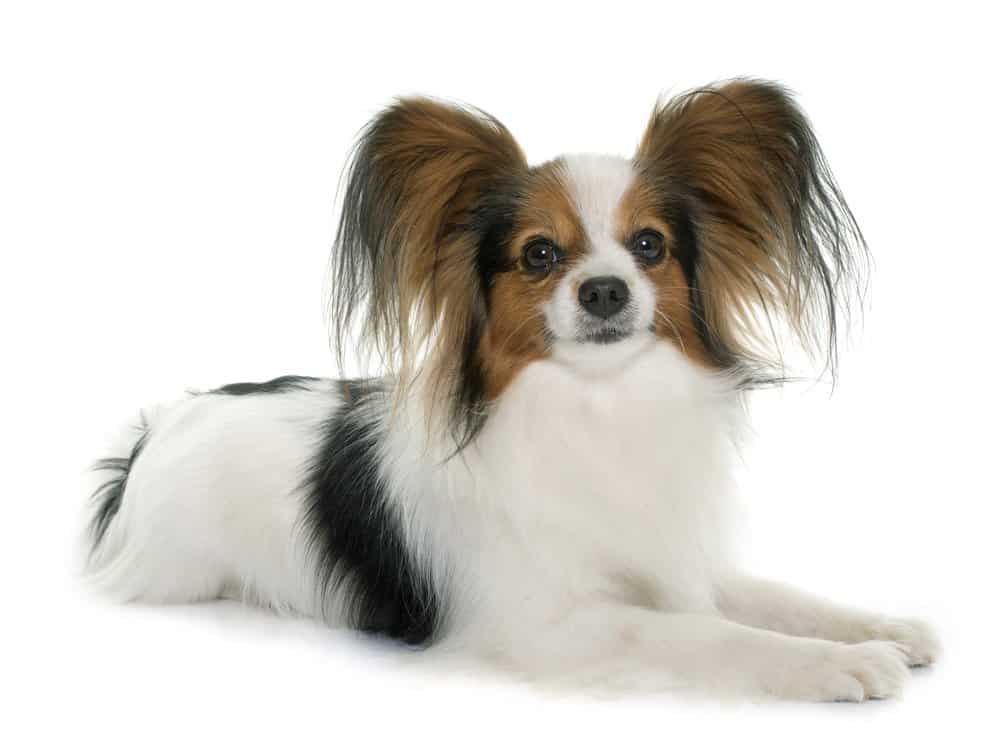
5. Pug:
A Pug may be as close to a cat as dogs can get. With a great love for warm laps and daytime naps, this sweet and laidback breed loves sharing its home with animals of a similar temperament.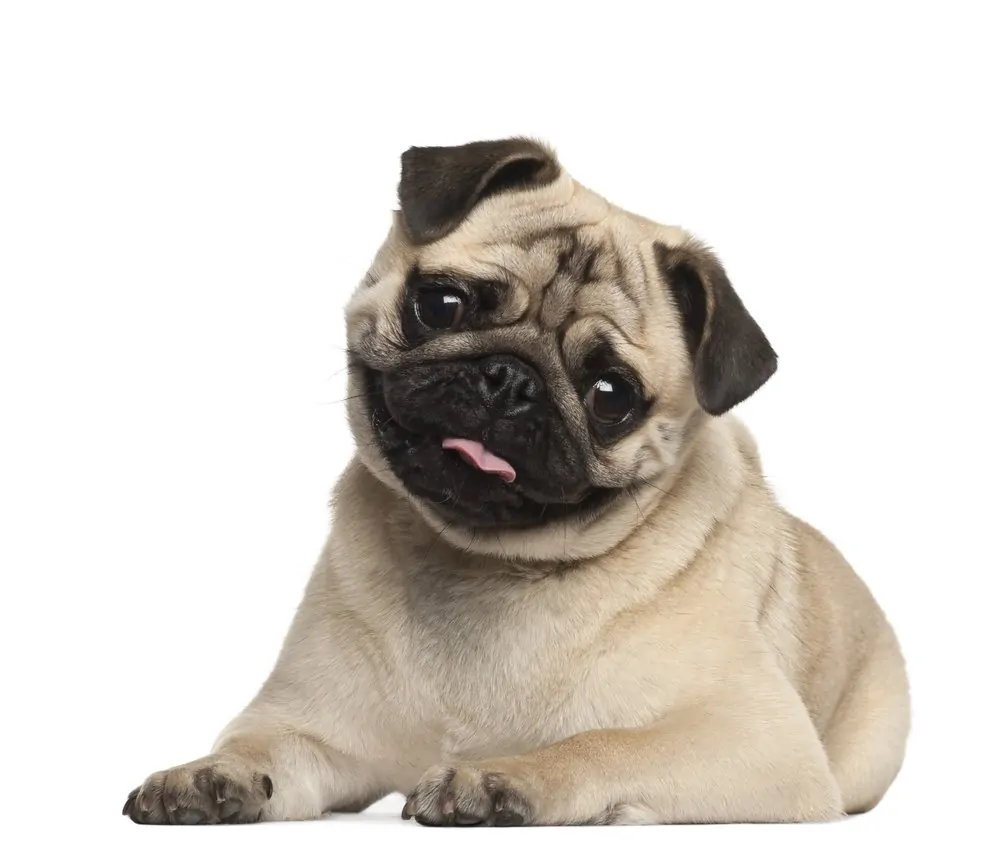
6. Cavalier King Charles Spaniel:
With a name that includes “king” in its title, the Cavalier King Charles spaniel exudes an air of propriety, and indeed, this dog breed is famous for its good manners and politeness.
They can be prone to separation anxiety, so not only will they tolerate a feline friend—they’ll seek one out.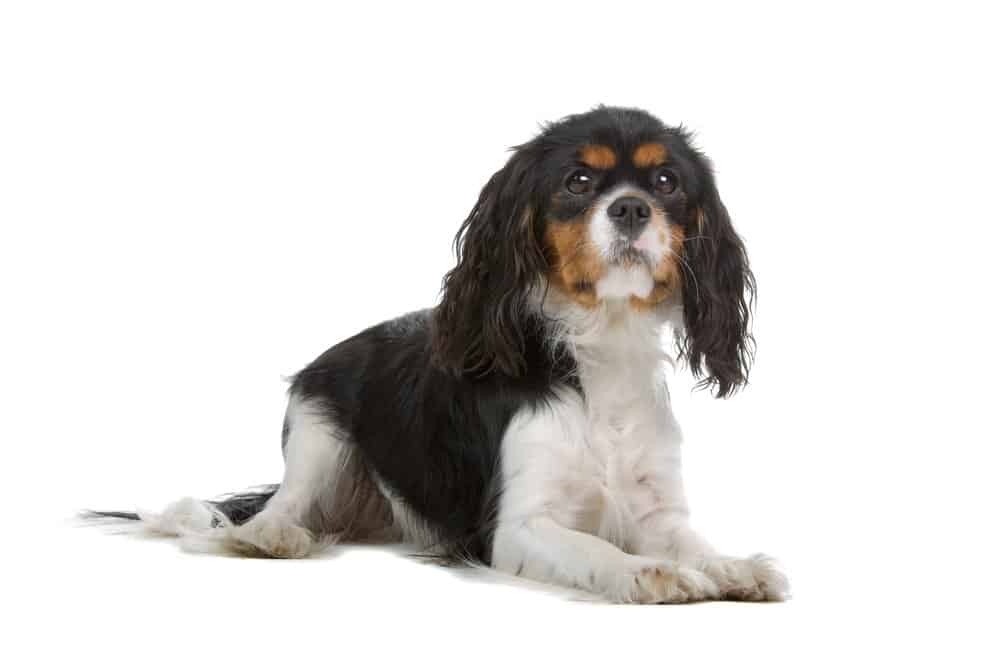
7. Bichon Frise:
The Bichon Frise is a charming little dog that is lively and very affectionate. Also known to be friendly with children and other pets like cats, the Bichon Frise has excellent trainability traits.
It’s physically covered with a white puffy coat, and one of the most active breeds of the small dogs.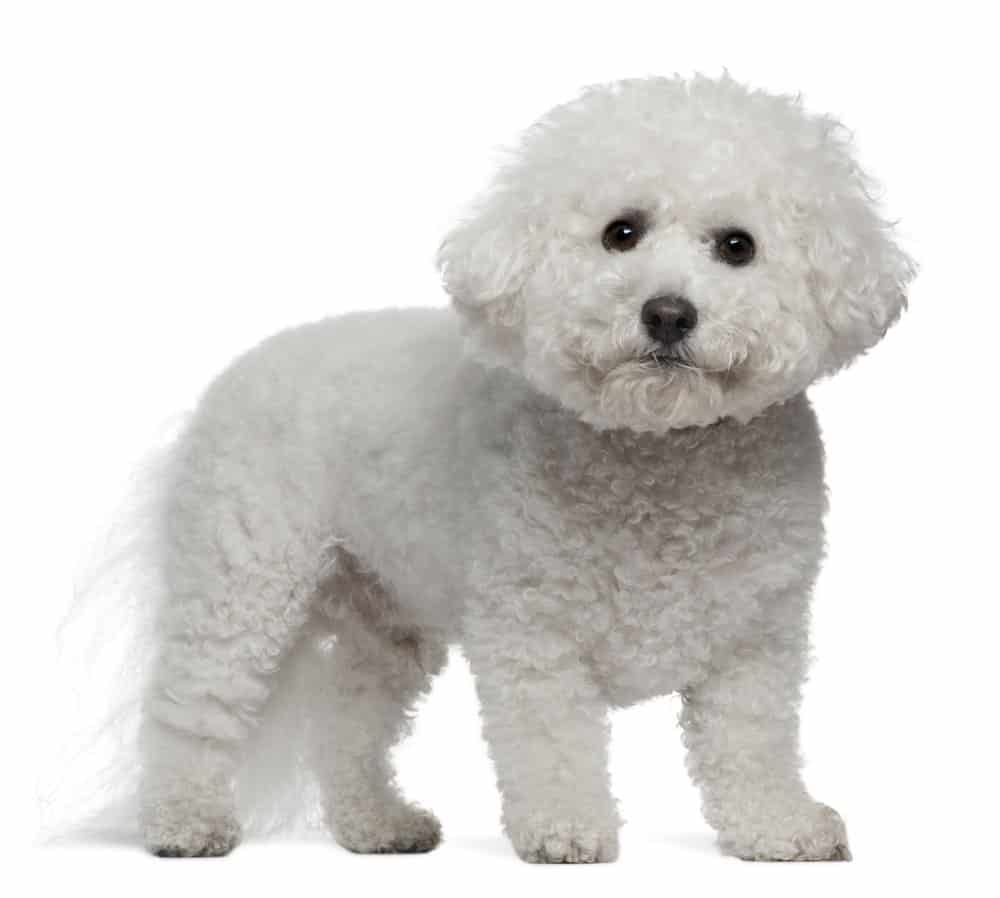
3 Guard Dogs That Get Along Well With Cats:
What, however, do you do if you want a dog that will get along with your cat while also protecting your family from danger?
To find a good guard dog that will still love your cat, you need to find a breed that balances a generally adaptable personality with the instinct to defend the family—easier said than done, perhaps, but still far from impossible!
1. Boxer:
On the surface, a Boxer may seem like an unorthodox choice for becoming a cat’s best friend, but these high-energy and playful dogs have a lot of loving to go around and don’t discriminate against other animals!
While some cats may not appreciate being bothered by a dog with such a frenetic temperament, boxers are built tough enough to handle a strike from a cat pushed too far, and sweet enough to think nothing of it.
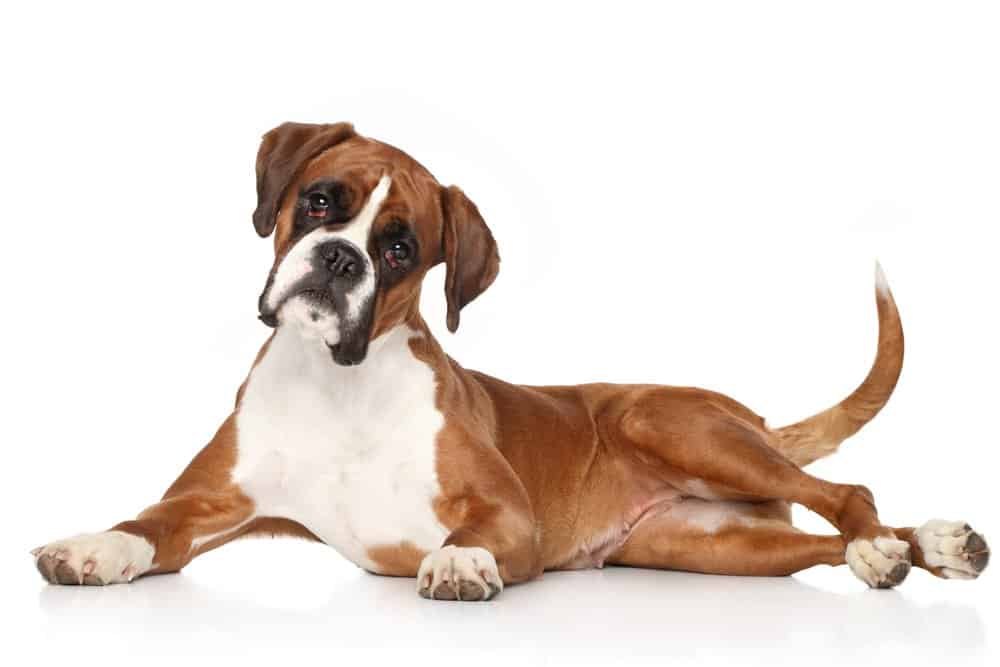
2. German Shepherd:
German shepherds are the second most popular AKC-recognized breed of dog in the United States according to AKC (beaten only by the Labrador retriever), and for a good reason: they’re loyal, smart, and easy to train.
Those same skills that make them quick to learn commands will also make them ready to adjust to the presence of a cat in your house.
If you make it clear that your new cat is another member of the family, a German shepherd will follow your lead and welcome the cat into the fold.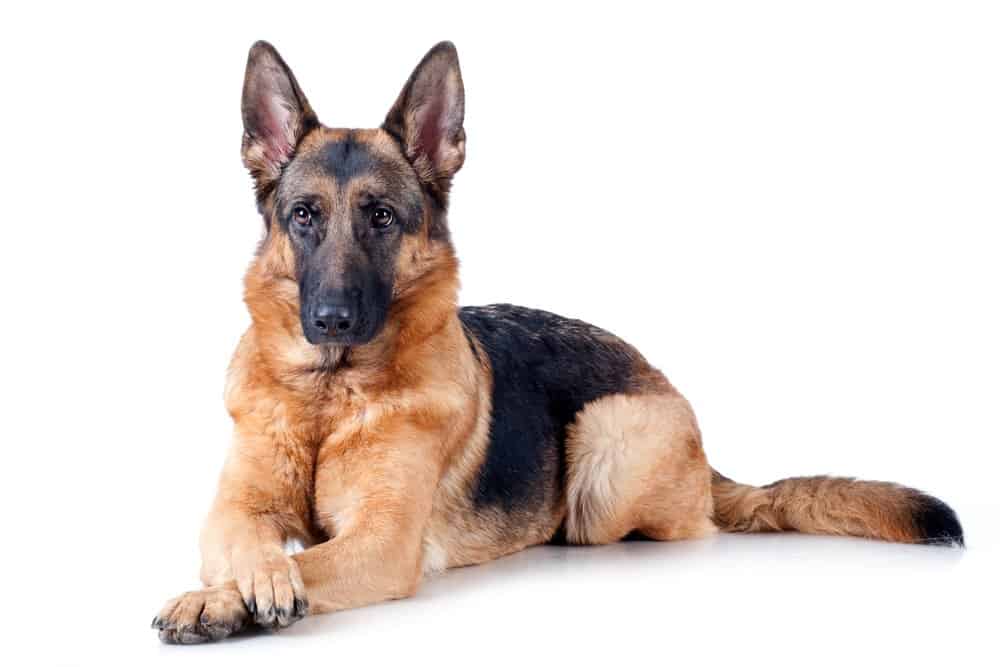
3. Newfoundland:
The Newfoundland certainly goes to show that you don’t need to sacrifice size to find a dog that gets along well with cats; they certainly don’t make them much bigger!
For how huge Newfoundlands are, they’re very sweet, gentle giants, and their soft nature makes them surprisingly unobtrusive when sharing a space with a cat, while their size and stature will still do well to ward off intruders.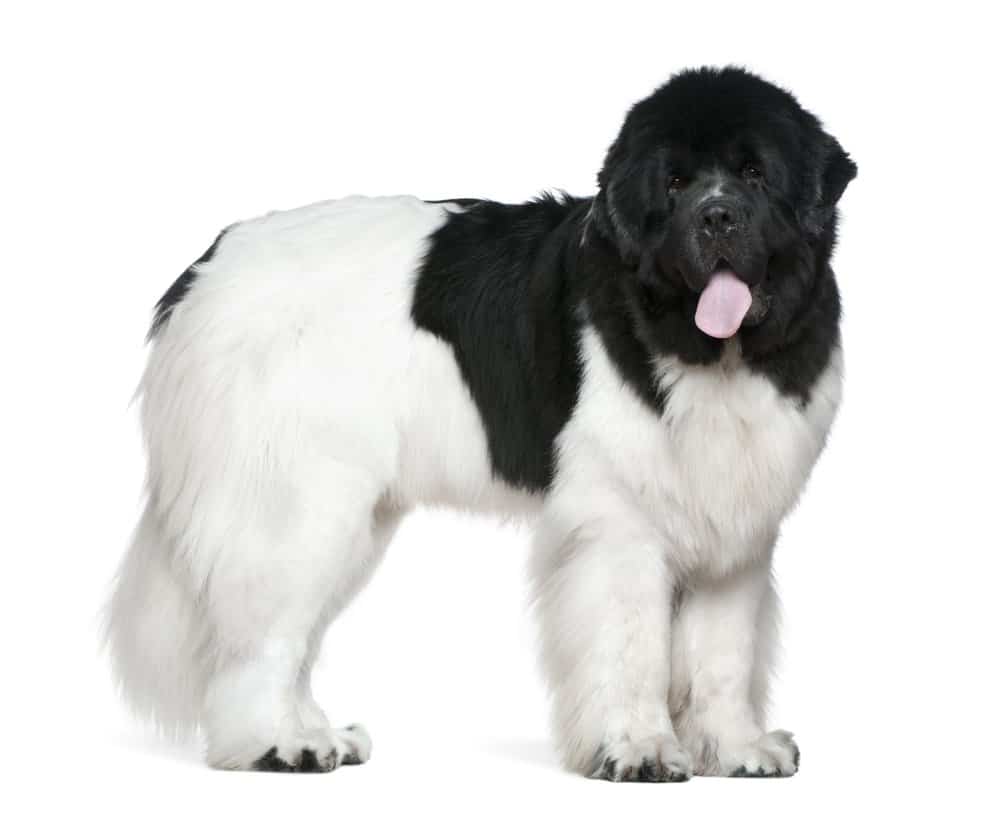
3 Hypoallergenic Cat-Friendly Dogs:
Some households need more from their dogs than just a tolerance for other animals.
Dog allergies are quite common, and if you suffer from them, you’re going to need a dog that can be friends with your feline, while also not triggering a sneezing fit.
1. Poodle:
Coming in toy, miniature, and standard versions, the poodle neither sheds nor smells, making it one of the most popular breeds of dog on the planet!
All types of poodles have loving and friendly personalities, which makes them a great choice for getting along with cats.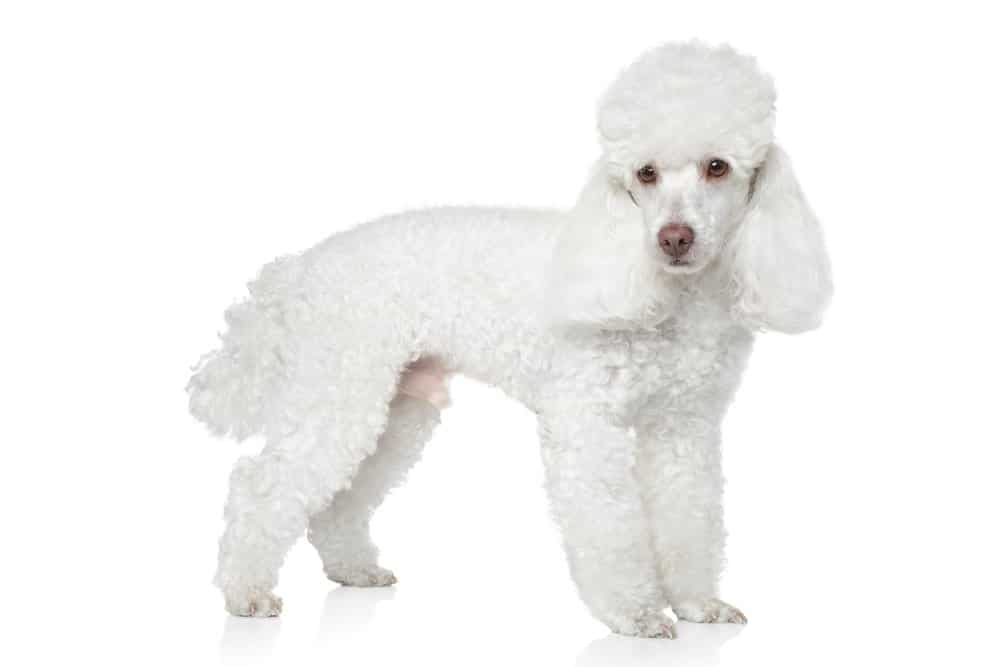
2. Labradoodle:
Given the popularity of the Labrador retriever and the poodle, it should come as no surprise that the combination of the two is the most popular of mixed breeds these days.
Like both of its parents, the Labradoodle has an easygoing and playful temperament that makes it a great cat companion.
CHECK OUT: Golden x Poodle Mix Breed
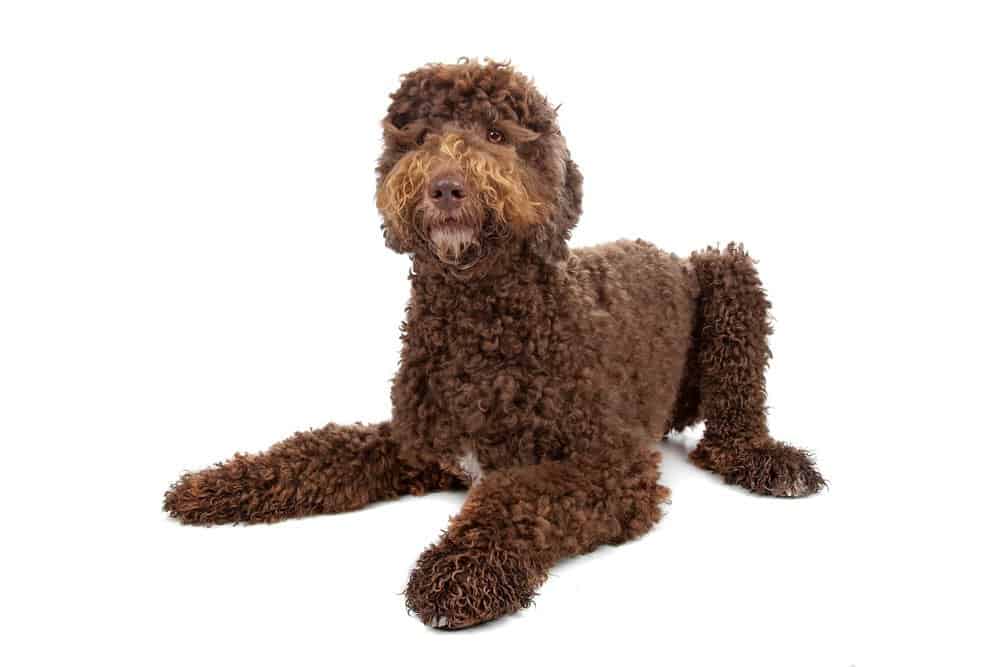
3. Italian Greyhound:
Originally bred to hunt, the Italian Greyhound is now more likely to spend its time lazing in the sun.
Don’t be surprised if you get an Italian greyhound and find your cat sunbathing with its new nap buddy.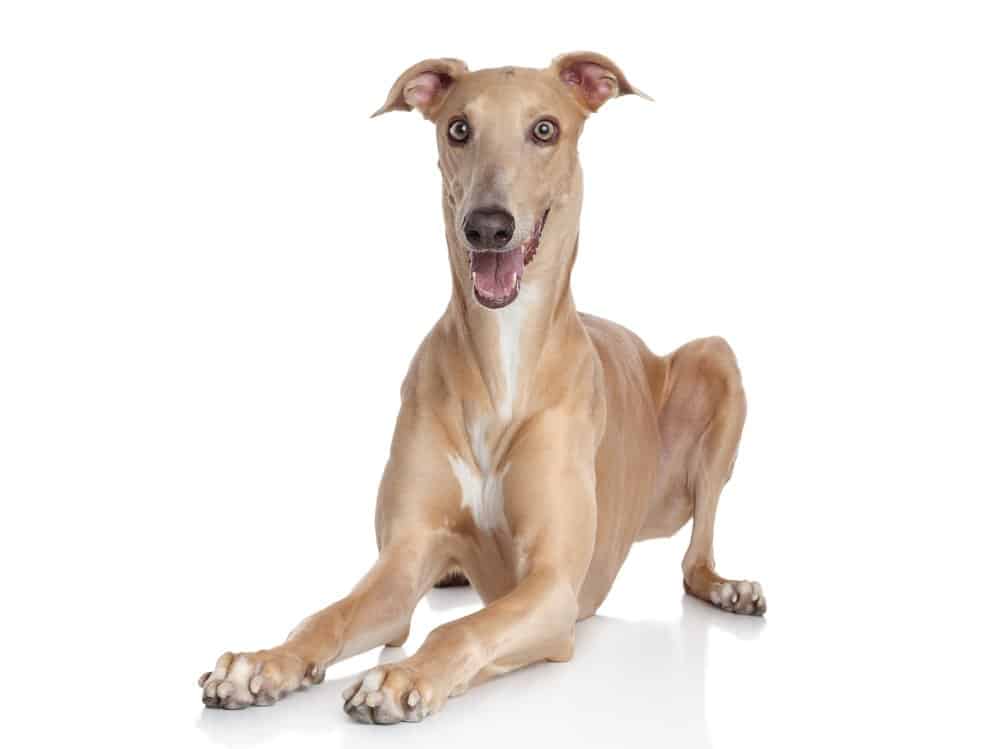
Can Dogs Really Live with Cats?
Well, of course, they can! ?
Don’t believe everything you see on TV; the natural rivalry between cats and dogs has been much exaggerated.
Still, if you want to share your home with friends of both feline and canine persuasions, there are definitely breeds of dog out there that are more likely to get along with cats than others.
The key is to keep yourself informed.
Educating yourself about dog and cat compatibility will help you make the best decision about what furry friends you should add to your home.
You’ll find more dog pros and cons questions in the links below:
- 15 Reasons why people hate dogs
- 7 Reasons why dogs lick ears
- English Bulldog vs French Bulldog
- Why do dogs bark in their sleep?
- Why do dogs have jowls?
- Why do dogs howl in their sleep?
- Wolf vs Husky differences
- What dog breeds would you never own?
- What is the differences between Labrador vs Golden Retriever?

